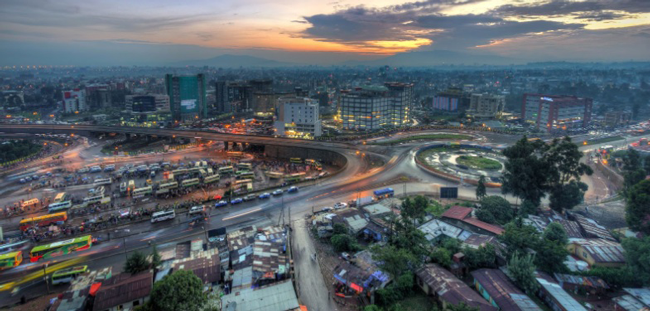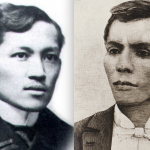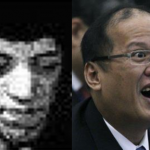Title V on Judicial Power
Article 122. The judicial power shall be vested in one Supreme Court of Justice and in such lower courts as may be established by law.
Article 123. The National Assembly shall have the power to define, prescribe, and apportion the jurisdiction of the various courts but may not deprive the Supreme Court of Justice of its jurisdiction over cases enumerated in Article 126. No law shall be passed reorganizing the Judiciary when it undermines the security of tenure of its members.
Article 124. The Judiciary shall enjoy fiscal autonomy. Appropriations for the Judiciary may not be reduced by the National Assembly below the amount appropriated for the previous year and, after approval, shall be automatically and regularly released.
Article 125. The Supreme Court of Justice shall be composed of fifteen Ministers appointed by the President of the Republic upon the binding advice of the President of the Council of Government and subject to the confirmation by the Commission on Appointments. The Supreme Court of Justice, working in a collegiate way, shall appoint its President for a single term of three years. The Supreme Court of Justice may sit en banc or in its discretion, in division of three, five, or seven Ministers. Except in cases described in Article 107, any vacancy shall be filled within ninety days from such vacancy.
All cases involving the constitutionality of a treaty, international or executive agreement which shall be heard by the Supreme Court of Justice en banc, and all other cases which under the Rules of Court are required to be heard en banc, including those involving the constitutionality, application, or operation of presidential decrees, proclamations, orders, instructions, ordinances, and other regulations, shall be decided with the concurrence of two thirds of the Members who actually took part in the deliberations on the issues in the case and voted thereon.
Cases or matters heard by a division shall be decided or resolved with the concurrence of a majority of the Members who actually took part in the deliberations in the case and voted thereon, and in no case, without the concurrence of at least three of such Members. When the required number is not obtained, the case shall be decided en banc: Provided, that no doctrine or principle of law laid down by the court in a decision rendered en banc or in division may be modified or reversed except by a vote of two thirds of all the Members.
Article 126. The Supreme Court of Justice shall have the following powers:
- Exercise original jurisdiction over cases affecting ambassadors, other public ministers and consuls, and over petitions for certiorari, prohibition, mandamus, quo warranto, habeas corpus, habeas data, and amparo.
- Review, revise, reverse, modify, or affirm on appeal or certiorari as the law or the Rules of Court may provide, final judgments and orders of lower courts in:
- All cases in which the constitutionality or validity of any treaty, international or executive agreement, law, presidential decree, proclamation, order, instruction, ordinance, or regulation is in question.
- All cases involving the legality of any tax, impost, assessment, or toll, or any penalty imposed in relation thereto.
- All cases in which the jurisdiction of any lower court is in issue.
- All criminal cases in which the penalty imposed is reclusion perpetua or life imprisonment.
- All cases in which only an error or question of law is involved.
- Assign temporarily judges of lower courts to other stations as public interest may require. Such temporary assignment shall not exceed six months without the consent of the judge concerned.
- Order a change of venue or place of trial to avoid a miscarriage of justice.
- Promulgate rules concerning the protection and enforcement of constitutional rights, pleading, practice and procedure in all courts, the admission to the practice of law, the Integrated Bar, and legal assistance to the underprivileged. Such rules shall provide a simplified and inexpensive procedure for the speedy disposition of cases, shall be uniform for all courts of the same grade, and shall not diminish, increase or modify substantive rights. Rules of procedure of special courts and quasi‐judicial bodies shall remain effective unless disapproved by the Supreme Court of Justice.
- Appoint all officials and employees of the Judiciary in accordance with the Civil Service Law.
Article 127. The Supreme Court of Justice, through the Office of the Court Administrator, shall have administrative supervision over all lower courts.
Article 128. No person shall be appointed Minister of the Supreme Court of Justice or magistrate of any collegiate court unless he is a citizen of the Philippines. A Minister of the Supreme Court of Justice must be at least forty years of age and must have been for fifteen years or more a magistrate or judge of a lower court or engaged in the practice of law in the Philippines.
The National Assembly shall prescribe the qualifications of magistrates and judges of lower courts, but no person may be appointed magistrate or judge unless he is a citizen of the Philippines and a member of the Philippine Bar.
A member of the Judiciary must be a person of proven competence, integrity, probity, and independence. No member of the Judiciary shall become a member of any political party or coalition.
Article 129. A Judicial and Bar Council shall be composed of seven members: a retired Minister of the Supreme Court of Justice as President, with two representatives from the Integrated Bar of the Philippines, two professors of law, and two representatives from the private sector as members.
The members of the Council shall be appointed by the President of the Republic upon the binding advice of the President of the Council of Government and confirmed by the Commission on Appointments for a term of five years without reappointment.
The Council shall enjoy fiscal autonomy and its approved annual appropriation shall be automatically and regularly released.
The Council shall have the following principal powers and functions:
- Recommend appointees to all collegiate courts and lower courts;
- Discipline magistrates and judges of the said courts, or order their dismissal by a majority vote of all the members of the council; and
- Perform other powers and functions as may be authorized by law.
Article 130. The decision of the Judicial and Bar Council, in the exercise of its disciplinary powers as provided in the preceding article, shall be appealable on certiorari to the Supreme Court of Justice.
Article 131. The President of the Council of Government shall appoint magistrates of all collegiate courts and judges of lower courts from among the list submitted by the Judicial and Bar Council within ninety days from the submission of the list. Such appointment needs no confirmation.
Article 132. The salary of the President and Ministers of the Supreme Court of Justice, magistrates of collegiate courts, and judges of lower courts shall be fixed by law. During their continuance in office, their salary shall not be decreased and upon retirement, they shall all be covered by a uniform retirement plan prescribed by law.
Article 133. The members of the Supreme Court of Justice, magistrates of collegiate courts, and judges of lower courts shall hold office during good behavior until they reach the age of seventy years or become incapacitated to discharge the duties of their office.
Article 134. The members of the Supreme Court of Justice and of other courts established by law shall not be designated to any agency performing quasi‐judicial or administrative functions.
Article 135. The conclusions of the Supreme Court of Justice in any case submitted to it for decision en banc or in division shall be reached in consultation before the case is assigned to a member for the writing of the opinion of the Court. A certification to this effect signed by its President shall be issued and a copy shall be attached to the record of the case and served upon the parties. Any members who took no part, dissented, or abstained from a decision or resolution must state the reason. The same requirements shall be observed by all collegiate and lower courts.
Article 136. No decision shall be rendered by any court without expressing clearly and distinctly the facts and the law on which it is based. No petition for review or motion for reconsideration of a decision of the court shall be refused due course or denied without stating the legal basis for the refusal or denial.
Article 137. All cases or matters filed after the effectivity of this Constitution must be decided or resolved within twelve months from the date of submission for the Supreme Court of Justice, and, unless reduced by the Supreme Court of Justice, six months for all collegiate courts, and three months for all other lower courts.
A case or matter shall be deemed submitted for decision or resolution upon the filing of the last pleading, brief, or memorandum required by the Rules of Court or by the court itself.
Upon the expiration of the corresponding period, a certification to this effect signed by the President of the Supreme Court of Justice or the presiding Minister shall forthwith be issued and a copy of which shall be attached to the record of the case or matter, and served upon the parties. The certification shall state why a decision or resolution has not been rendered or issued within said period. The unjustified failure to render a decision or resolution within the mandatory periods may be a ground for the impeachment of the Members of the Supreme Court of Justice or the imposition of sanctions, including removal, against a collegiate court magistrate.
Despite the expiration of the applicable mandatory period, the court, without prejudice to such responsibility as may have been incurred as a consequence, thereof, shall decide or resolve the case or matter submitted to the court for determination, without further delay.
Article 138. The Supreme Court of Justice shall, within thirty days from the opening of each regular session of the National Assembly, submit to the President of the Council of Government and the National Assembly an annual report on the operations and activities of the Judiciary.




 I believe: This is a CoRRECT™ Video with a very positive message
I believe: This is a CoRRECT™ Video with a very positive message Walang Natira: Gloc-9's MTV Rap about the OFW Phenomenon
Walang Natira: Gloc-9's MTV Rap about the OFW Phenomenon

























